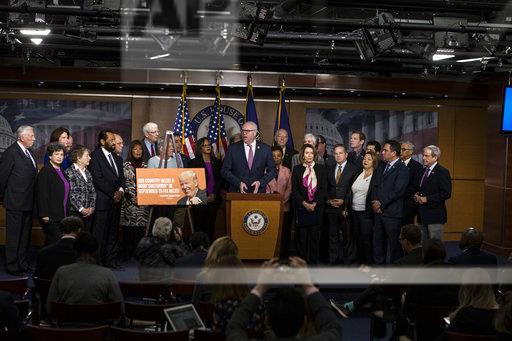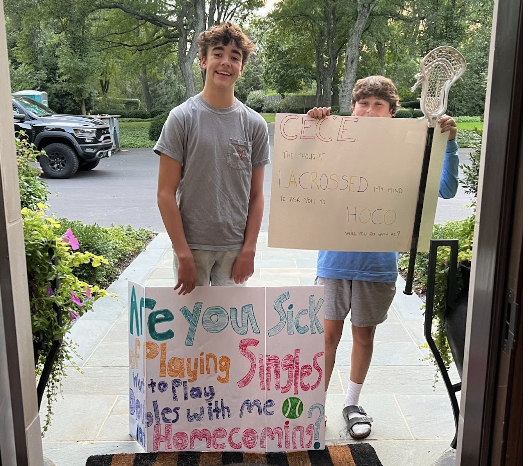For the first time since 2013, our federal government was shut down over a congressional disagreement over a federal budget. The shutdown lasted just under three days, instilling panic in many federal employees. All of the chaos led many people to wonder who was to blame for the bottleneck in Congress against progress. Republicans are saying the Democrats. Democrats say the Republicans. Some, naturally, are blaming Trump. So who was really responsible?
The ongoing argument about the federal budget is no more than a prolonged disagreement had by Congress to pass something that is remotely bipartisan. This is arguably the single most important piece of legislation that Congress has passed under Trump. Even though the Republican Party has a majority in both congressional houses, legislation like the funding bill requires a 60 vote majority, requiring agreement by some Democrats for any kind of legislation to pass.
Somehow, they were able to pass a temporary agreement, funding the government through February 8. There are continuing arguments on the losers and winners of the new plan; the Democrats were dubbed ‘losers’ while the Republicans have been rumored to have come out on top. It was a classic political battle: publicized, highly contested, and competitive.
Honestly, there is only one impetus for the government shutdown: politics. Not only has the divide between Republicans and Democrats grown sharper and wider in the past decade, but the inability to define and promote beliefs plague our congressmen daily. A Politico poll states that the majority of voters (Democrats, Independents and Republicans combined) support the continuation of an Obama-era program allowing undocumented immigrants who came to the US as children to have an accelerated path to citizenship. The program, Deferred Action for Childhood Arrivals (DACA), was not included in the latest spending bill passed by Congress. Why did this happen?
We have come to a point in our country where our congressmen are affiliating themselves more with their specific party than with their specific beliefs. For example, because Republicans are ‘supposed’ to disagree with Democrats, they may fight against legislation that Democrats support, such as DACA. Does that necessarily mean that every Republican believes that DACA should be ended? All people are not the same; it is unlikely that every single Republican believes the same things.
So why would a politician vote against something they may oppose vehemently beneath the surface? It’s the same reason that Uggs and fidget spinners became trends: everyone wants to follow a crowd. Politics are no different than school cafeterias–people are constantly trying to catch up with the crowd to seem ‘cool’ or ‘trendy.’ Granted, our political situation is a bit different than material or technological trends like essential oils or Snapchat, but the similarities are striking. People who are unable to stand up for what they believe in often stay silent and follow the crowd to please other people. If everyone has something, natural instinct will say to, you guessed it, follow the crowd.
So is our Congress filled with people who value their reputation more than their personal beliefs? Is the inability to be different causing disagreements and problems in our government? Is this a lesson for all of us in character and strength?
As people living America, our average life expectancy is about 78 years. That’s 78 years of learning and losing and watching. We may affiliate ourselves with many different roles in that time frame: daughter or son, mother or father, politician or musician, protester or churchgoer. But that never means that we are only one exclusive person. Being a person means that we each have different roles to play. We are not just daughters or sons, and we are not just office workers. Yes, some of our congressmen may be Republicans or Democrats, but that is not their entire identity. They do not get to hide behind that labels and stay silent on their own beliefs. Each one of the 435 representatives in the House and 100 senators in the Congress have different beliefs that are formed because each one of them has had varying experiences in their lifetimes. Labels make us weaker. Being separate never brings us closer to common ground. Hiding behind a group of people defeats our internal obligations to our moral standards. Valuing what other people think of us over how we feel about ourselves is cowardly and way too easy.
In order for our government to remain open after February 8th, our Congress has to decide what matters more to them. They have to summon the strength to be able to stand up for what they believe in and not care what others have to say about it. Teachers and parents tell their kids these principles every day; it is time for our political leaders to set and promote a good example for the future generations.
So, Congress. Dare to be different. Don’t let your party define you. Swim against the tide. You know what I mean. Make the progress you know you want and need to make, and do it for yourselves and your country, not just the party you associate yourself with. Because each of you is not just a politician, but a wholesome and real-life person. Progress comes with confidence, and we need a stronger confidence in our government more than ever at this time in our history. Make your country proud.




















